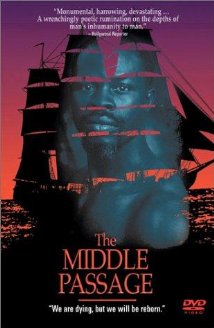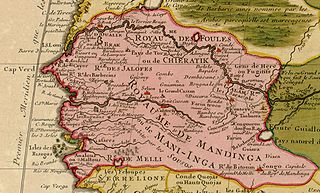
The history of Senegal is commonly divided into a number of periods, encompassing the prehistoric era, the precolonial period, colonialism, and the contemporary era.

Alain Tanner is a Swiss film director.
Négritude is a framework of critique and literary theory, developed mainly by francophone intellectuals, writers, and politicians of the African diaspora during the 1930s, aimed at raising and cultivating "Black consciousness" across Africa and its diaspora. Négritude gathers writers such as sisters Paulette and Jeanne Nardal, Martinican poet Aimé Césaire, Abdoulaye Sadji, Léopold Sédar Senghor, and Léon Damas of French Guiana. Négritude intellectuals disavowed colonialism, racism and Eurocentrism. They promoted African culture within a framework of persistent Franco-African ties. The intellectuals employed Marxist political philosophy, in the Black radical tradition. The writers drew heavily on a surrealist literary style, and some say they were also influenced somewhat by the Surrealist stylistics, and in their work often explored the experience of diasporic being, asserting ones' self and identity, and ideas of home, home-going and belonging.

The Soninke people are a West African Mande-speaking ethnic group found in Mali, Fouta Djallon, southern Mauritania, eastern Senegal, Guinea and The Gambia. They speak the Soninke language, also called the Serakhulle or Azer language, which is one of the Mande languages. Soninke people were the founders of the ancient empire of Ghana or Wagadou c. 300–1240 CE, Subgroups of Soninke include the Maraka and Wangara. When the Ghana empire was destroyed, the resulting diaspora brought Soninkes to Mali, Mauritania, Senegal, Gambia, Burkina Faso, Côte d'Ivoire, Guinée-Conakry, modern-day Republic of Ghana, and Guinea-Bissau where some of this trading diaspora was called Wangara.

Édouard Glissant was a French writer, poet, philosopher, and literary critic from Martinique. He is widely recognised as one of the most influential figures in Caribbean thought and cultural commentary and Francophone literature.
The Franco-Trarzan War of 1825 was a conflict between the forces of the new emir of Trarza, Muhammad al Habib, and France, ruled at the time by Charles X and the ultra comte de Villèle. In 1825, Muhammad attempted to establish control over the French-protected Waalo Kingdom, then located south of the Senegal River, by marrying the heiress to the kingdom. The French responded by sending a large expeditionary force that crushed Muhammad's army. The war incited the French to expand to the north of the Senegal River.

Danielle Arbid is a French filmmaker of Lebanese origin. She has been directing films since 1997.

Michel Brault, OQ was a Canadian cinematographer, cameraman, film director, screenwriter, and film producer. He was a leading figure of Direct Cinema, characteristic of the French branch of the National Film Board of Canada in the 1960s. Brault was a pioneer of the hand-held camera aesthetic.

Raymond Depardon is a French photographer, photojournalist and documentary filmmaker.

Dominique Cabrera is a French film director. She has taught filmmaking at La Fémis and at Harvard University. Her film Nadia et les hippopotames was screened in the Un Certain Regard section at the 1999 Cannes Film Festival. Additionally, her work has screened in the Berlinale, the Toronto International Film Festival, the Vienna International Film Festival, the Locarno Film Festival, the Rotterdam Film Festival, and in the New York Film Festival, among others.
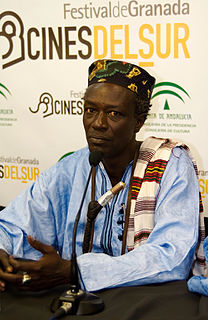
Moussa Sene Absa, Moussa Sène Absa, or Moussa Sène Absa is a Senegalese film director, editor, producer, screenwriter, painter and songwriter. He was born in 1958 in Tableau Ferraille, a suburb of Dakar (Senegal) to a Serer family.
Fernand Dansereau is a Canadian film director and film producer.
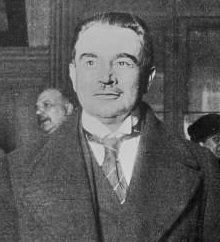
Jules Gaston Henri Carde was a French colonial administrator who served as Governor General of French West Africa and then Governor General of Algeria.

Isabelle Leymarie is a French musicologist, writer, pianist, filmmaker, translator and photographer.

Pierre Anctil is a Canadian historian. He is specialist of the Jewish community of Montreal, of Yiddish literature and of the poetic work of Jacob-Isaac Segal. He also published on the history of immigration to Canada. He translated a dozen Yiddish books into French.

Fabienne Kanor is a French journalist, novelist and filmmaker of Martinique origin. She is a winner of the Prix Carbet de la Caraïbe et du Tout-Monde.
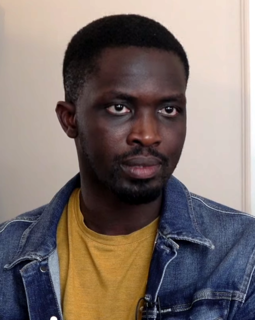
Mohamed Mbougar Sarr is a Senegalese writer. Raised in Diourbel, Senegal and later studying in France, Sarr is the author of four novels as well as a number of award-winning short stories. He won the 2021 Prix Goncourt for his novel La plus secrète mémoire des hommes, becoming the first Sub-Saharan African to do so.
Olivier Barlet is a French journalist, translator, film critic and researcher on African cinema and its diasporas.
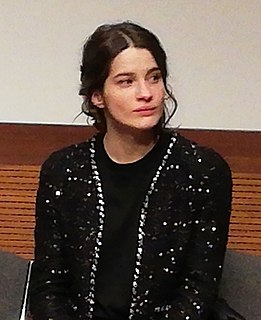
Rebecca Marder is a French film and stage actress.
